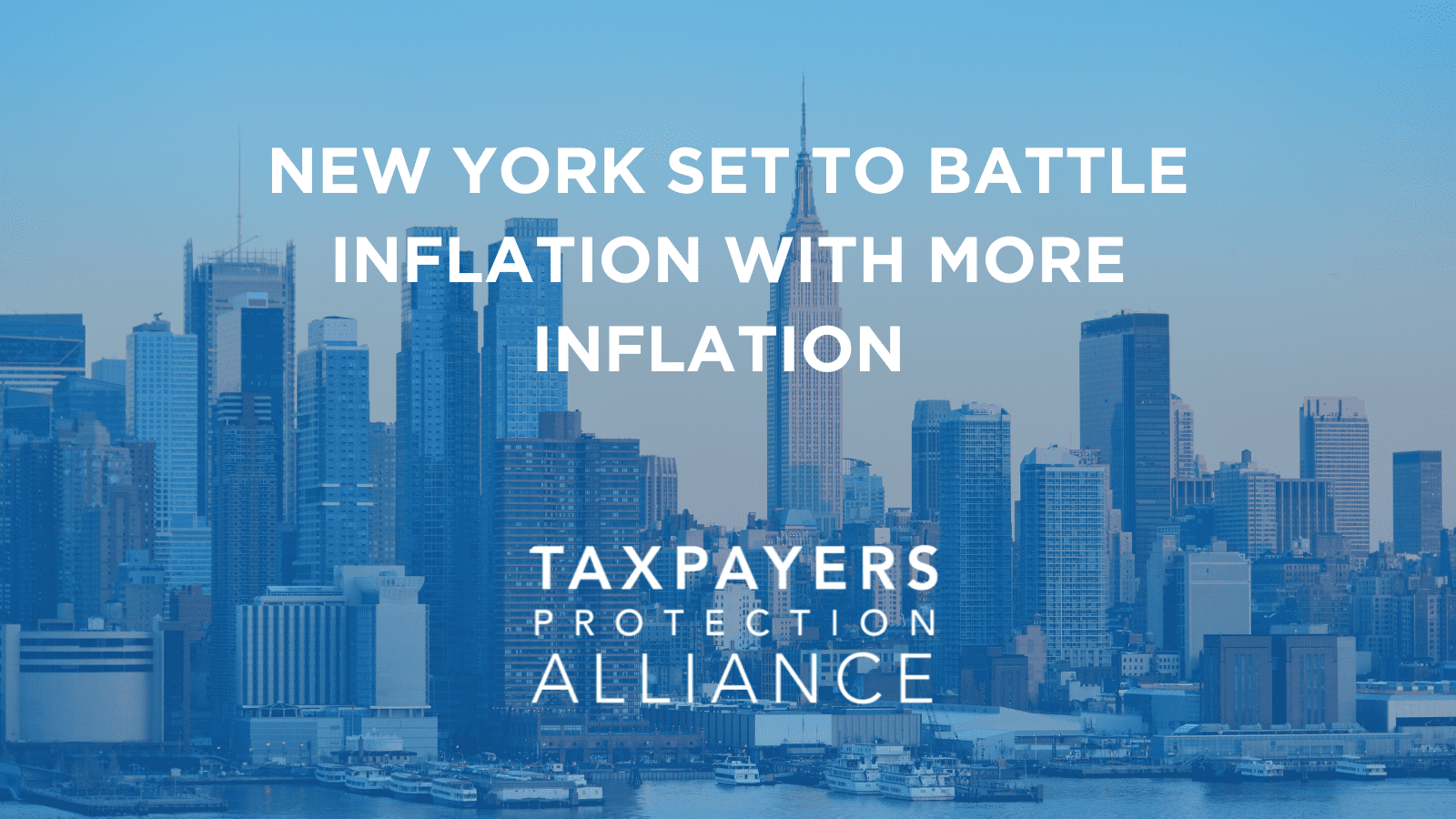
New York Set to Battle Inflation with More Inflation
Christina Smith
July 11, 2025
Speaking at Berkshire Hathaway’s annual meeting, Warren Buffet said, “We still have very substantial inflation in the United States, but it’s never been runaway … yet, … and that’s not something we want to try and experiment with, because it feeds on itself.”
Inflation has been at the forefront of public discussion since Americans faced record-high inflation of more than 9 percent in 2022. Inflation rates have receded over the past few years, averaging around 3 percent since its peak near the end of the COVID-19 pandemic.
The U.S. inflation rate for the 12 months ending in May 2025 was 2.4 percent, according to the Bureau of Labor Statistics. This marks an increase from the 2.3 percent rate reported for the 12 months ending in April 2025, likely spurred by tariffs coming into effect and perpetually-high government spending.
State legislators are facing pressures to help reduce costs for consumers, and New York State has disappointingly decided to redistribute taxpayer dollars as a means to cope with increased costs caused by inflation. The 2025-2026 New York State budget includes provisions for inflation refund checks of up to $400. The payments to New Yorkers are intended to offset increased sales tax payments resulting from higher inflation. The checks will be automatically mailed out starting in mid-October 2025.
Stimulus checks may offer temporary relief to combat inflation and boost consumer spending. Still, state lawmakers seem woefully unaware that the government’s practice of handing out money has the unintended consequence of contributing to higher inflation. Taxpayers and consumers lose when the government prints money or distorts the marketplace by redistributing taxpayer dollars. These policies directly lead to higher taxes, soaring borrowing costs (e.g., mortgage rates), and price hikes. The checks are a band-aid solution to a government-perpetuated problem and won’t solve any long-term problems other than creating further dependency on the government. The stimulus checks also remove a layer of personal responsibility by detaching earnings from work.
Instead of artificially inflating the market with cash, states such as New York should address the root cause of the problem: government spending. As noted in a recent report by a local ABC news affiliate, spending outpaces revenue in New York’s latest enacted $250 billion budget, with a spending increase of more than 5 percent. Commonsense reforms to introduce choice and competition to education and healthcare programs can go a long way toward getting costs under control.
The U.S. has experienced record-high inflation. If federal and state lawmakers continue to implement bank-breaking spending programs, Americans will face runaway price and tax hikes for the foreseeable future.
